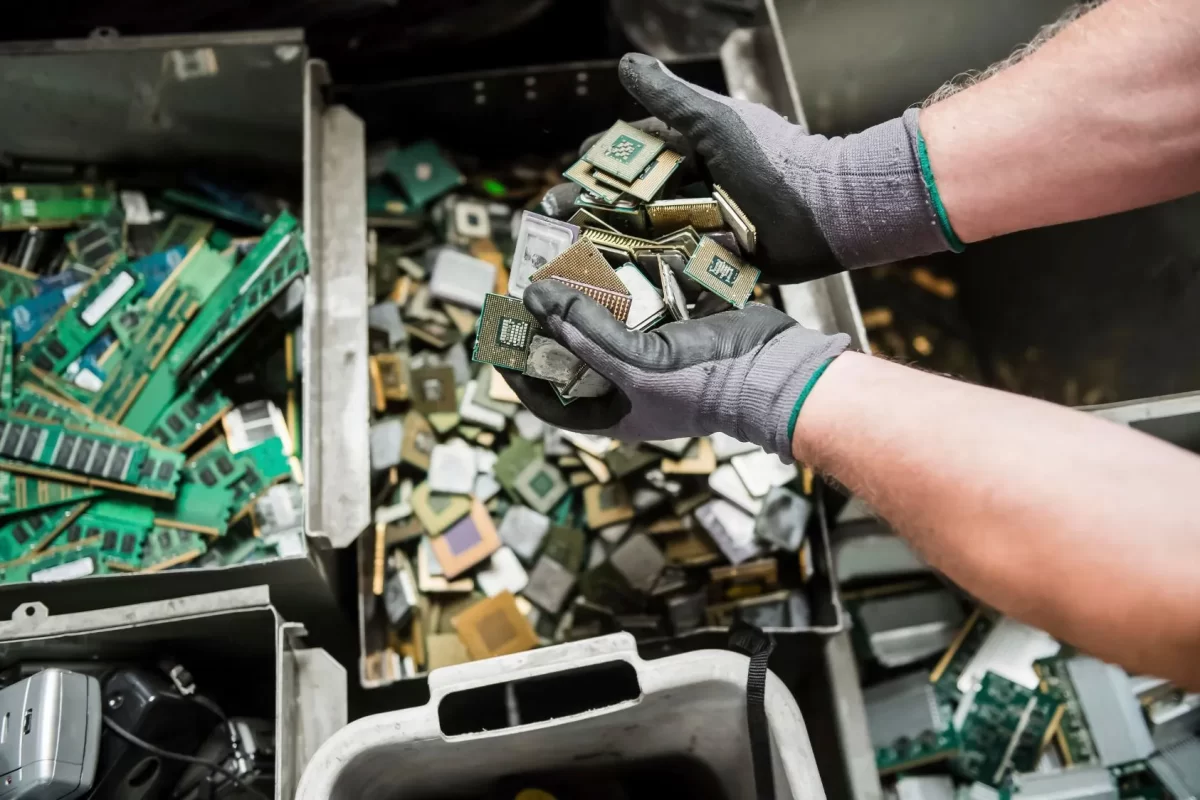Technology has become an integral component of our daily lives. Electronic waste is also a problem due to the constant demand for better and newer devices. One such electronic device that contributes to this issue is laptops. Laptops are essential tools for work, study, and entertainment, but they also have a limited lifespan. When a laptop reaches the end of its life, it’s important to recycle it responsibly. Recycling laptops not only reduces electronic waste, but also helps conserve natural resources and the environment. In this article, we’ll talk about how laptop recycling works. They would occupy landfill space if they weren’t recycled. This can increase pollution and decrease natural resources. Recycling a laptop means that the materials, such as metal, plastic, or glass, are separated from each other and processed. This way, they can be reused, which helps to conserve resources and reduce the environmental impact of manufacturing new products. If you’re searching for additional info on it recycling reading, look at the above website.
Recycling laptops also helps to prevent e-waste, a growing problem as electronic devices become more prevalent in our daily lives. You will need to wipe your personal data off the laptop before it can be recycled. This can either be done using a data erasure software or by physically removing any hard drives from the laptop. It is also necessary to remove any batteries and other accessories from your device before you recycle it. There are many options to recycle your laptop. Many manufacturers offer take-back services where your old laptop can go back to them for their recycling. Third-party recycling companies also specialize in ewaste recycling. Some companies even offer pickup service, where they come to your place to take your old computer. The process of laptop recycling typically involves four main steps. First, old laptops are collected from various sources, including individuals, businesses, and government agencies. Once they have been collected, the laptops will be sorted according to their make, model and condition.
The components of the laptops, including the motherboard, hard drive and screen, will be removed from the computer. Finally, the individual components are processed and recycled, which may involve melting down metals or shredding plastic parts. By following these steps, old laptops can be disposed of in an environmentally-friendly manner while also conserving resources and reducing the impact of e-waste. Laptop recycling companies have the resources and expertise to safely and properly dispose of electronic waste. This includes extracting valuable materials from old laptops and ensuring that any hazardous materials are safely contained and disposed of. You can rest assured that your laptops will be recycled responsibly and in compliance with all applicable regulations by working with a reliable laptop recycling company. Laptop recycling is an important method to help reduce the environmental impact associated with electronic devices. Your laptop can be recycled by properly preparing it for reuse and by using recycling services.





